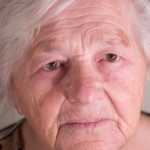New Old Age column: More Older People Treated for Depression

The New York Times New Old Age blog has an interesting, hopeful article by Paula Span regarding treatment for depression in older adults. Regarding the stigma of psychotherapy the article mentions, I’ve found nursing home residents to be very receptive to my visits, especially when I phrase my help as “extra support during a stressful time.” Everyone agrees that entering a nursing home is stressful. (See my earlier post, The Stress of Nursing Home Admission, for more on this.) Occasionally, when someone is resistant but I can tell they need me, we postpone the decision to officially start psychological services and I tell them I’ll “just stop by next week to see how things are going.” Nine times out of ten, they’re glad to see me and appreciative that I showed up when I said I would.
Here’s the start to the New Old Age post; click on the title below to read the whole article:
More Older People Treated for Depression
By PAULA SPANAnna Hill’s mother-in-law had suffered from depression for years, it was clear in hindsight, and had denied it for years, too. Only 73, she’d lost interest in doing much of anything. In chronic pain after an earlier accident, she was taking high doses of methadone. Last November, she stunned her family by declining, at the eleventh hour, to come to Thanksgiving dinner.
“I’d only seen her in a nightgown for a year straight,” said Ms. Hill, 42, an accountant in Atlanta. “She was just rotting away in bed, watching TV and taking methadone.”
Depression in the elderly is a mixed picture these days.
For years, mental health specialists lamented that depression was seriously underdiagnosed and undertreated in the elderly. Laypeople saw it not as a disease but as an inevitable part of aging. Doctors missed it because depression didn’t always look the way it did in younger patients — less sadness and weepiness, more physical symptoms and disengagement. Older people themselves often rejected help because mental illness carried a stigma.
In primary care practices, Dr. Jürgen Unützer and colleagues found in a large study published in 2000, only 12 to 25 percent of older people with probable depression were getting a diagnosis and being treated.
Not anymore. Over the past decade, “we’ve seen a really big increase in the recognition of depression and the initiation of treatment,” said Dr. Unützer, a geriatric psychiatrist now at the University of Washington.
For more, click on title of article above.
